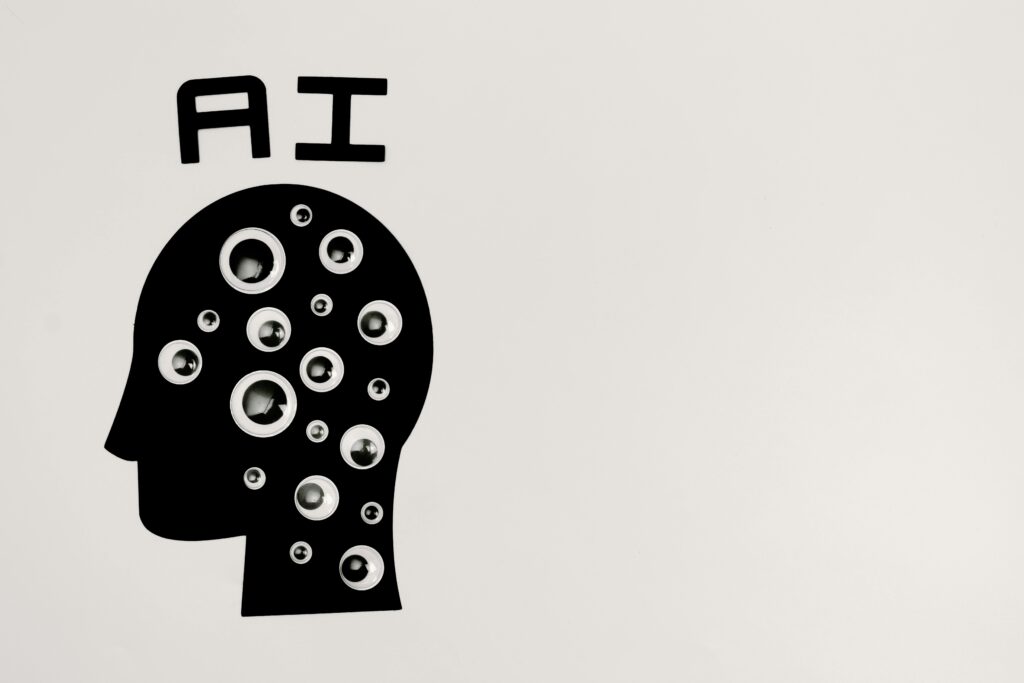The future of AI
This article on the future of AI is written by Becky Zimmer, a freelance writer based in Humboldt, Saskatchewan with experience in farm, community, small business and sports reporting.

Kenzi is four years old. Asking her to write and tell me a story, blue pen scribbles on notebook paper her own form of “writing”, was a great way to distract her while I hung out on my aunt’s couch on a working holiday, the long wait before Kenzi’s mom came to pick her up a failed attempt at my own writing.
The small glimpse into the mind of a preschooler was a lesson in itself. My cousin talked about the adventures of her grandpa and a snowman, her mind jumping from one plot line to the next. First, the snowman was melting as he travelled down a river to the ocean, her small mind flabbergasted on where to take the story from there. Then, her great grandpa, also present in the room, came into the picture, he and the snowman performing magic tricks and singing a song that sure included her own name a lot.
While the players and settings were closely front-of-mind in the form of her family and her hometown in British Columbia, individual words came from somewhere else. The dozens of stories she already heard in her short life a goulash of ideas in her head, forming something completely new.
By the time she is in university, how will these tales be transformed into something different? What new characters and location will play a role in her storytelling?
In 10 or 15 years, will she still be forming her own stories? Maybe she will be learning how to take them from her head to the page or screen?
Throughout this series on artificial intelligence, we’ve talked about how AI has had an impact on writers and educators and what AI development means for journalists, but the biggest question I’ve wanted to ask is what the future of AI development is going to look like.
How far will AI development go and is it a good thing?
This discussion was brought even more into the spotlight recently with breaking news about Geoffrey Hinton quitting his job with Google after 10 years. According to a New York Times article, the artificial intelligence pioneer created technology at the University of Toronto in 2012 that became the intellectual foundation for AI. Now, he is speaking out against his creation.
Just like what we said in previous articles, Hinton expects AI to take the grudge work out of rote tasks but they may take away more than that.
“It is hard to see how you can prevent the bad actors from using it for bad things.”
While Alec Couros, director for the Center for Teaching and Learning at the University of Regina, mentioned the utopian dream of AI taking away those monotonous jobs to let humans focus on the critical thinking, collaboration, comprehension, and creativity elements, he also mentioned the concerns of the current path we are going down. There is no final destination because so far, there is no perceived end to the places AI could take the human race.
However, there are already issues in security, technological over-dependence and drops in literacy rates that are telling signs of trouble for the future, especially when coupled with the COVID-19 pandemic, said Couros. While he is not talking about all of these problems coming to a head in the next few years, systemic changes may alleviate some of these concerns; Couros cites universal basic income as a solution because people could be free to pursue more creative endeavours after they’re jobs become AI-based.
AI is going to change the world, so how do we solve the ensuing global problems?
“We have to retool our ideas. We have to think differently about how we see work and labor and how we interact with technology.”
You cannot watch this AI-powered shift and not see the potential changes to copyrights, production, and creation, said Owen Brierley. There are always going to be two camps of people; those that want to maintain the creative process without AI and those that want to embrace AI and both will bring different value adds to the table.
The biggest shocks to the system will take place in the short term, said Brierly, but over the long term, we are going to be dealing with a “deepening of accuracy, the broadening of application.”
“This ability for a human to human to AI collaboration where I can become a much more effective collaborative with you, as a colleague, friend, whatever, and AI helps augment that by contributing in ways that I can understand the noise that you can’t understand so we end up generating something that we’ve never been able to generate just on our own, the two of us.”
With AI coming into the more creative aspects of society, with many recent examples of AI based art and music, we have reached an existential step, said Darren Hick, assistant professor of philosophy at Furman University in Greenville, South Carolina. Technological development concerns are nothing new; Hicks remembers when the internet was just personal websites and six degrees of Kevin Bacon, but it figured out how to be useful. AI is not going anywhere, he said, and we have to be cognizant of where we’re going with it.
“It’s technology, there’s nothing wrong with that. There’s nothing wrong with computers, there’s nothing wrong with cell phones, as long as we don’t lose sight of why we were doing this in the first place.”



